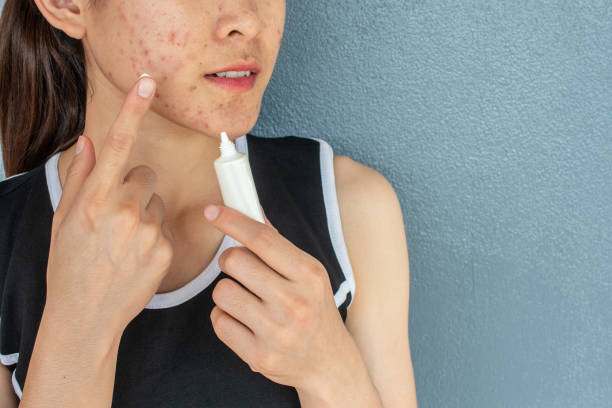You’re probably constantly on the lookout for ways to improve your complexion. Eating a healthy diet and reducing stress are essential for radiant and clear skin.
Vitamin B3, known as Niacinamide, is a critical component in the fight against acne, blemishes, and blotchy skin.
Vitamin B3, or Niacinamide as it is also called, helps the body turn the food you eat into fuel by allowing your body to absorb the fats and protein they contain (1). This helps to keep your hair and skin healthy. Niacinamide has also been shown to reduce acne scars.
How does it work? Skin Health Experts explain the fantastic benefits of this potent Vitamin.
What is Niacinamide
Niacinamide, a water-soluble vitamin B3, is also known as niacin. The body does not store excess. It must be obtained from food. Niacinamide can be obtained by eating (2).
Beets
Fish
Eggs
Nuts, seeds, and other nuts
Beans
Green veggies
Breads and cereals fortified
Eggs
You can apply niacinamide-containing products topically and eat these tasty foods rich in vitamin B3.
Topical applications may not provide the same benefits as niacinamide ingestion, but they can improve the health of your skin.
How Does Niacinamide Benefit Your Skin
In recent years, niacinamide-containing skincare products have become increasingly popular. It’s not surprising when you think about the benefits of niacinamide on your skin.
Hyperpigmentation Niacinamide is a powerful antioxidant that helps improve skin tone and block the pigment-producing enzyme melanin.
Retention Of Moisture- The topical application of Niacinamide helps stabilize your natural skin barrier function, reducing the amount of water it loses. This helps to balance the moisture in your skin and gives it a smooth, soft appearance.
Preventing the signs of aging skin- Niacinamide, by enhancing moisture retention and stimulating cell repair, can reduce or avoid the appearance of wrinkles and fine lines.
Reduced inflammation- Niacinamide soothes inflammation, which may reduce the appearance of redness due to certain skin conditions.
Niacinamide balances your skin’s moisture to regulate the production of oil. This prevents the overproduction of oils that can cause acne.
Choosing the ingredients and products you use to clear your skin regarding acne and breakouts is crucial. You may have heard about different acne ingredients, from benzoyl to salicylic acid. You might wonder if benzoyl or salicylic acid can treat acne.
What is the best way to use Niacinamide on acne-prone skin
You’re probably wondering if Niacinamide helps with acne. You can see how Niacinamide helps to clear your skin when you think about its ability to reduce irritation and regulate oil production.
Niacinamide regulates the production of skin sebum. Sebum is a type of oil produced by sebaceous cells. Sebum overproduction is associated with moderate to severe acne outbreaks (4). Topical Niacinamide could be the missing puzzle piece in your skincare routine.
What is the recommended dose of Niacinamide for acne?
There is no consensus among skincare experts on the amount of Niacinamide that should be used to reduce oil production and redness in acne-prone skin. Studies show topical Niacinamide’s effectiveness in treating other skin conditions using a 2%-5% concentration.
Niacinamide Side effects: Are they common
Most side effects of Niacinamide tend to be mild. The most common side effects include:
Itching on the skin
Redness of the skin
Overall skin irritation
Mild Burning Sensation
Many of these irritations will disappear as your skin becomes accustomed to the ingredients. If the symptoms persist, you should consult your dermatologist. They may suggest that you reduce the amount you use or change how you treat your skin.

